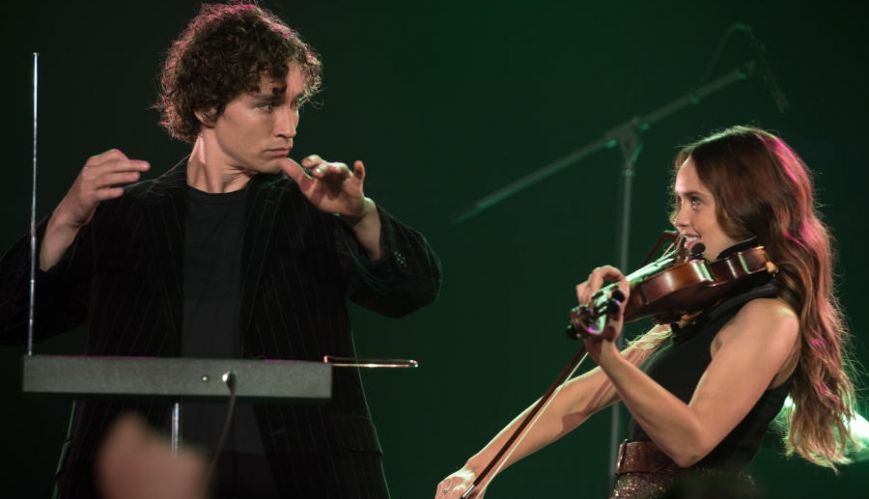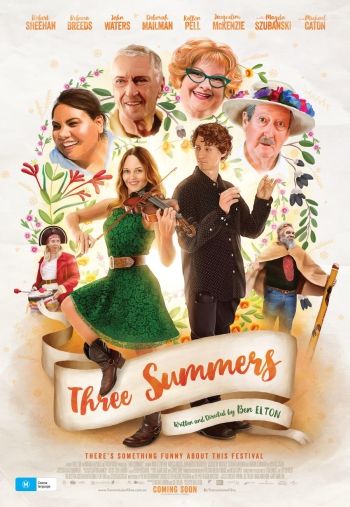Movie review: Three Summers

Movie review: Three Summers
4 November 2017
Three Summers won’t go down in cinematic history as one of Australia’s great comedies.
Three Summers is a quirky Australian comedy about a peculiar community, in the tradition of predecessors like Strictly Ballroom and The Dish. 
However, where those titles tended to put the laughs first and look for meaning afterwards, this latest release has opted to give centre stage to a range of emotive, important social issues.
Three Summers is written and directed by British creative Ben Elton, of Blackadder fame. It’s set in Western Australia at a fictional folk music festival called “Westival”, a summary for all the remarkable and ridiculous things that come together to form Australia’s fringe music scene.
Its line-up stretches from pub-style Irish music bands to drumming pirates and Morris dancers. Over three years, viewers see the developments that take place in the lives of performers and audiences alike, though the script largely revolves around the story of Keevey and Roland.
Keevey is the feisty violinist and lead singer of the Irish folk band called The Warrikins. Roland, on the other hand, is a socially stunted, part-time musician who plays the bizarre electronic instrument known as the Theremin.
His antipathy towards folk music and his general arrogance set the basis for Three Summers’ love story. Will the Irish girl and the city lad be able to make beautiful music together?
But director Elton actually has more significant harmonies in mind. Three Summers is crowded with commentary on every significant issue threatening to divide Australia today.
Westival’s social melting pot is the setting for clashes between Aboriginal activists and closet racists, stoushes over constitutional reform and sexual politics, as well as nods to youth detention, the Stolen Generation and children dumped Down Under by Britain’s child migrant program.
However, the lion’s share of criticism is reserved for Australia’s handling of refugees. A small band of Afghani musicians share their music and their pain, recounting their struggles to make it to the Westival stage: “The hell I just described is not just the land we came from but also the country on which we landed ... We’ve lost everything and we ask for nothing except for the chance to begin again.”
They would share more, but their minders tell them it is time to return to the local detention centre in which they’re quartered.
Three Summers is full of this level of criticism. Elton clearly hopes to inspire, but has created wooden, heavy-handed scenes that do little more than obscure the issues with clichés.
Three Summers won’t go down in cinematic history as one of Australia’s great comedies because it basically bit off more than it could chew.
However, it’s worth acknowledging the film’s key message at a time when our country is tearing itself apart because people cannot accept that others see the world differently.
Michael Caton plays the chief steward of the Morris dancers, who comes to realise that his refusal to value different worldviews runs counter to the very tolerance he believes Australia stands for: “I was only looking at my story, as if it was the only one that matters. Unless we start listening to each other's stories we won’t begin to understand our own.”
As Christians, we may stand under an increasing weight of criticism for holding that there is one God and one path to peace through his Son.
Yet we will hardly be given the chance to share that truth if we fail to take the time to value the lives that have brought our listeners to the point of conversation.
Three Summers is rated M and is in cinemas now.
Mark Hadley is the culture writer for others and is one of Australia’s leading Christian communicators.